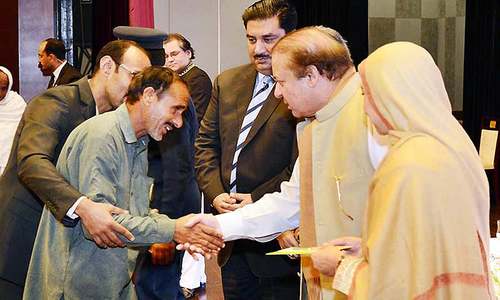LAHORE: The Lahore High Court, Bahawalpur bench, on Wednesday suspended the changes introduced in the Sehat Sahulat Programme (SSP), commonly known as Sehat Card, by the caretaker government of Punjab.
Justice Asim Hafeez passed the injunctive order on a public interest petition filed by Farah Khan, a student of law.
Advocate Aftab Mubarik argued on behalf of the petitioner that the caretaker government of the province adopted several anti-citizen policies. He said that one of such policies was the withdrawal of various facilities available to citizens under the health card scheme launched by the previous elected government.
He said the Punjab Health Initiative Management Company issued a notification on June 22 and withdrew the facilities from the poor citizens without assigning valid reasons despite the fact that allocation of funds had already been made in the provincial budget for it.
Petitioner says caretaker govt cannot take major policy decisions
The counsel questioned the eligibility of the caretaker government to curtail the health benefits extended through the Sehat Sahulat Programme. He argued that the caretaker government lacked jurisdiction to make policy decisions.
He said a meeting of the caretaker cabinet that approved the impugned decisions was in sheer violation of Section 230 of the Election Act, 2017.
He pointed out that the law required the caretaker government to run only the day-to-day affairs of the province and to assist the ECP in the conduct of fair and free general elections in the country.
He argued that a caretaker government could not take major policy decisions except urgent matters.
Advocate Mubarik said the impugned decision of the caretakers was not only against the law but also based on mala fide intention. He asked the court to set aside the caretaker government’s decision.
In his order, Justice Hafeez observed that the contention raised by the petitioner needed consideration.
The judge ordered the chief secretary of Punjab to prepare and submit a detailed report explaining what changes or limitations had been imposed on the facilities available under the Sehat Sahulat Programme.
The judge also sought replies from other respondents by July 17 and suspended the operation of the impugned notification till the next hearing.
At a press conference on Sunday, caretaker information minister Amir Mir had rejected reports that the government stopped treatment of cardiac patients under the programme, declaring it a propaganda campaign.
He said the SSP was originally brought by PML-N in 2015 for the poor and deserving patients only.
However, he claimed, a mafia became billionaires during the PTI tenure when a majority of the patients enrolled under the SSP went to private hospitals.
Caretaker Health Minister Prof Javed Akram said the government excluded the affluent class from the health insurance programme, restricting it to the deserving, eligible and under-privileged citizens earning up to Rs65,000 per month.
He alleged that the private hospitals made billions of rupees by misusing the health card scheme.
Published in Dawn, July 6th, 2023














































Dear visitor, the comments section is undergoing an overhaul and will return soon.